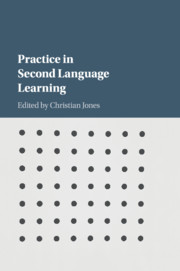Foreword
Practice: Time for a Reappraisal?
Published online by Cambridge University Press: 27 February 2018
Summary
- Type
- Chapter
- Information
- Practice in Second Language Learning , pp. xiv - xviiiPublisher: Cambridge University PressPrint publication year: 2018
References
- 3
- Cited by



